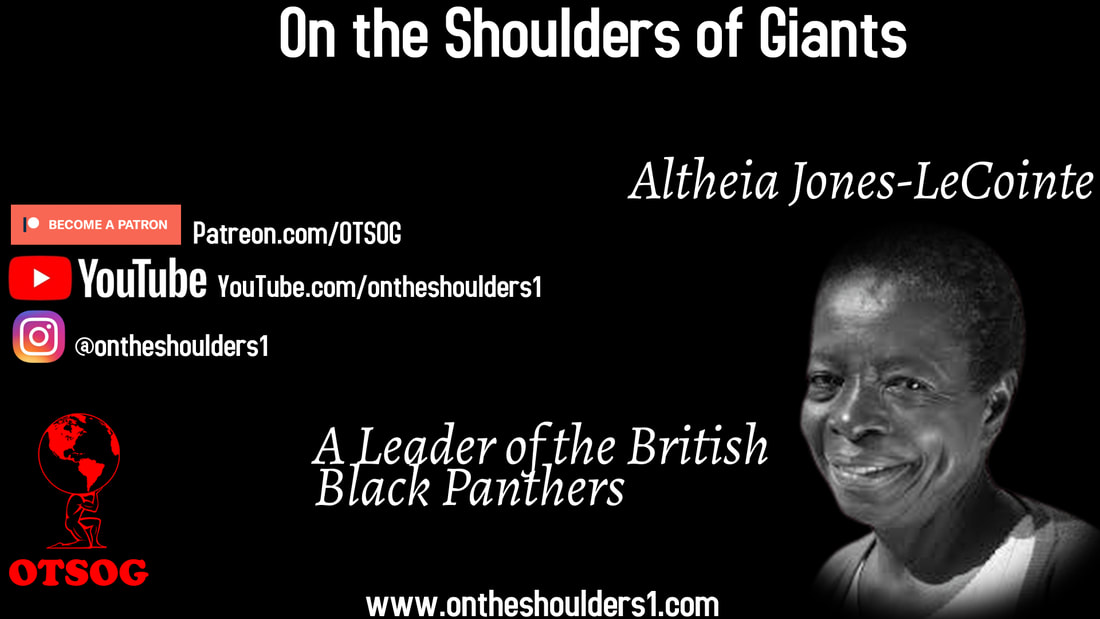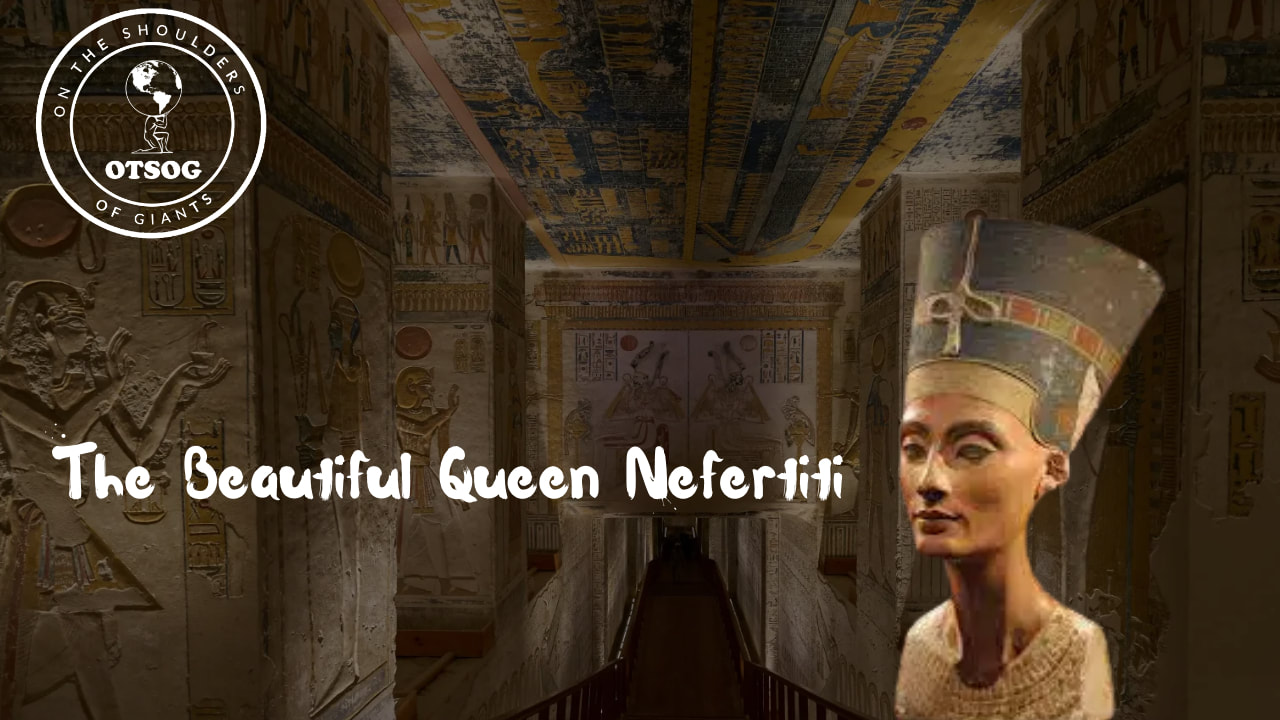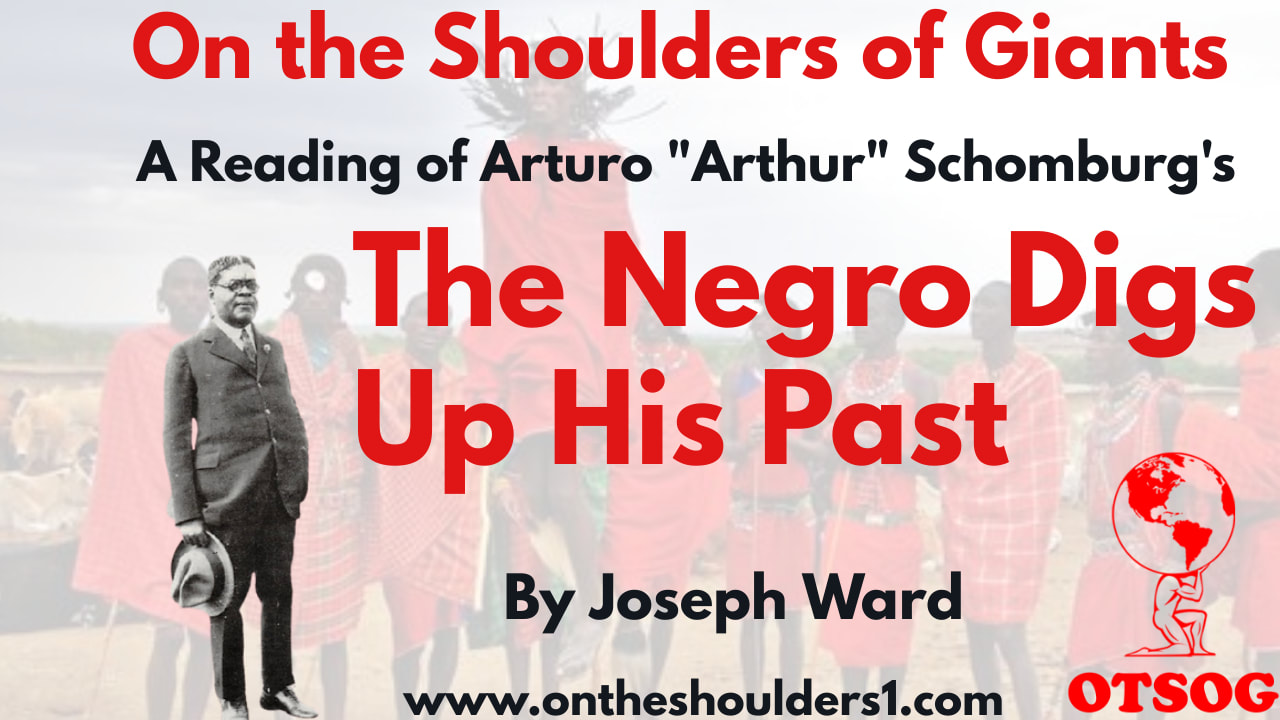|
On January 9th, 1945, Altheia Jones-LeCointe was born to parents Viola and Dunstan Jones in Port of Spain, Trinidad. Altheia was described as vibrant and exceptional as a young girl because she was intellectually gifted. Her college career started in the city of Barataria, where she attended St George’s College, and after earning her bachelor’s and master’s degrees she attended the University College London and earned her Ph.D. in biochemistry in 1965. As a college student political activism became a part of Altheia’s life. After earning her Ph.D. she became a teacher and a member of the Universal Coloured People’s Association (UCPA), an organization where she was one of the main organizers helping to fight against racism against African and Asian people. In 1968, the Universal Coloured People’s Association was led by a Nigerian novelist, playwright, and political activist, Obi Egbuna, but he was arrested and imprisoned because of his political activism with the UCPA and the British Black Panthers. Altheia soon assumed leadership roles within the UCPA and the British Black Panthers. Her leadership helped to revive both organizations and the energy behind the political movements. As a visible leader of the Black British movements against racism and oppression of African and Asian people, Altheia was able to increase the memberships of both the UCPA and the British Black Panthers through recruitment, as well as, building relationships with fellow anti-racism activists in London. Darcus Howe and Altheia’s husband Eddie LeCointe were two of the most notable names recruited to join the British Black Panthers. Altheia’s reputation as an incredible talent with intellectual gifts followed her even as an activist; she successfully used her intelligence to debate for the Black Panther Youth League, and she also taught classes to the youth about anti-colonialism. She was a fearless person and a talented public speaker. Her impact helped to make black women in London fighting against racism more visible. Altheia also made sure black women were not overlooked, suppressed, or victims of sexual abuse as a leader of the British Black Panthers; it is said that anyone who harbored sexist views did not last long within the organization. Under the leadership of Altheia Jones-LeCointe, the British Black Panthers’ membership increased by more than three thousand people, they created the Freedom News newspaper and created community programs similar to the Black Panthers in the United State. Altheia was never officially declared the de-facto leader of the British Black Panthers, but her leadership skills prevailed and helped the organization thrive. The Mangrove Restaurant was very popular within London’s black population, it was owned by a man named Frank Crichlow, and became the main meeting place of black political activists. It also became targeted by the London police because they wanted black people to stay in their place and just accept racism as the norm. After being harassed by the police Altheia and other activists organized a protest against the constant police raids of the Mangrove in 1970. There were over one-hundred and fifty protestors being opposed by more than 200 police officers. The protest became violent due to the police antagonizing the protestors, which led to Altheia and eight other figures being arrested. The Mangrove Nine was the name of Altheia and her eight other comrades who were arrested protesting police harassment. Darcus Howe and Altheia Jones-LeCointe were the only two of the Mangrove Nine to represent themselves in court, they were determined to stand up for themselves and expose the police as a group of thugs who only harassed black people. After a long and arduous trial, the Mangrove Nine all walked free from being convicted of any crimes; the police were exposed for targeting the Mangrove Nine because of their race. At the time, the trial of the Mangrove Nine was the longest trial in British history, and an important trial exposing the racist history of the British against black resistance. The events of the Mangrove Nine are depicted in documentaries and television series’ such as The Mangrove Nine, Sky Atlantic, Small Axe, and How the Mangrove Nine Won. Altheia Jones- LeCointe’s story is not a widely told story, in fact, in the television series Sky Atlantic, Altheia was not depicted at all. She was a black-Caribbean woman who was proud of who she was and where she was from, she was also a leader, warrior, and nurturer for her people. She directly challenged the London police and their constant harassment of her and her people and came out victorious. To Dr. Altheia Jones-LeCointe, we proudly stand on your shoulders. J.A. Ward Click here to learn more about the On the Shoulders of Giants book series. References: https://www.stylist.co.uk/visible-women/altheia-jones-lecointe-black-british-civil-rights-activists-panther-mangrove-nine-notting-hill/232959 https://en.wikipedia.org/wiki/Altheia_Jones-LeCointe https://www.connectradio.fm/2020/11/20/small-axe-letitia-wright-shares-the-beautiful-connection-she-had-with-mangrove-activist-altheia-jones-lecointe/ https://www.blackpast.org/global-african-history/british-black-panther-party-1968-1973/ https://en.wikipedia.org/wiki/Mangrove_Nine
0 Comments
On March 23, 1942, Walter Anthony Rodney was born to parents Edward and Pauline Rodney in Georgetown, Guyana. Rodney’s family was considered working class, but he was still able to excel in his academics as a young boy. During high school he continued to excel which led him to graduate at the top of his Queen’s College class of 1960; Queen’s College was the top male high school in Guyana. Because of his academic excellence, he earned a scholarship to attend the University of the West Indies at Mona, Jamaica. In typical Walter Rodney fashion, he graduated at the top of his class with honors and a degree in history in 1963. His next step was attending the School of Oriental and African Studies at the University of the West Indies, where at the age of twenty-four he was an honors student who earned his Ph.D. in African History. His dissertation “A History of the Upper Guinea Coast 1545 to 1800” was so exceptional that the Oxford University Press published it in 1970. While earning his master’s and Ph.D., Rodney was a professor at the University of Dar es Salaam in Tanzania from 1966 to 1967. He served as a professor at the university for a second stint from 1967 to 1974, moving into his rise as a political activist. As a college student, his popularity was increasing because of his ability to speak to the public as well as his participation in the demonstrations against the Jamaican government. Rodney was meeting with human rights groups that represented the poor, Rastafarians, and anyone who was mistreated by the government. He even became an acquaintance and student to the Caribbean legend CLR James. Because of his affiliations, Rodney was being targeted by the Jamaican government and labeled as a problem. Rodney wanted the government to stop the oppression of its people. Black Power, Black Liberation, and Black Consciousness were the core of his messages. Using his academic prowess, he learned four additional languages to help him become more proficient and skilled at researching the history of his people. In 1968, after returning to Jamaica from a conference in Montreal, Canada, Rodney was denied re-entry into Jamaica, which caused a riot that started in Kingston called “The Rodney Riots”. In 1969, he published his first book Groundings With My Brothers, a book that focuses on the decolonization of Africa and the Caribbean, and the promotion of Black Power. In 1968, Rodney would move to Cuba before moving back to Tanzania. While in Tanzania, he found work as a lecturer which allowed him to travel and witness the effects of European colonization on Africa and its people. In 1972, Walter Rodney published his groundbreaking book How Europe Underdeveloped Africa. A book that highlights the colonization and exploitation of Africa and its people by European colonies. Rodney used his platform to create intellectual spaces of discussion to help analyze their current conditions and create solutions to change them. These discussions coincided with the Sixth Pan-African Congress which was held in Tanzania in 1974. Also in 1974, Rodney moved back to Guyana after accepting a position as a professor at the University of Guyana. The offer was eventually rejected by the government of Guyana, or more specifically the People’s National Congress. To make a living, Rodney moved his family to the United States to teach and further his mission of ending the oppression of black people under the colonial powers. In 1979, Rodney along with seven other people was arrested and charged with arson after being accused of burning down government offices. In 1981, he published two books, Marx in the Liberation of Africa and A History of the Guyanese Working People 1881 to 1905. His books shed light on the oppression of people because of race and class and gave information on overcoming differences in the name of unity and upliftment. The organization the Working People’s Alliance was formed in 1974, Rodney joined and eventually became a leader in the organization. They went on to successfully unite people from Africa and East India as a political party that challenged the Guyanese government. Because of his activism in the Caribbean, Africa, and the United States, Rodney was targeted by several governments and labeled as a trouble maker. He was often harassed by various police forces and dealt with constant threats to his life. In June of 1980, Walter Rodney was assassinated by a military officer using a remote control bomb. Rodney was thirty-Eight years old. Before his death, he left the world a great legacy of a freedom fighter who demanded liberation for his people. He was recognized and honored for his contributions to the world. Over 18 awards, foundations, and conferences were named in honor of Walter Rodney. He published twelve books and twenty-two other publications. He used his intelligence and bravery to give a voice to the people he witnessed being oppressed, his people. To the great Walter Rodney, we proudly stand on your shoulders. J. A. Ward Click here to support the On the Shoulders of Giants books series. References: https://www.walterrodneyfoundation.org/biography/ https://blackhistorystudies.com/resources/resources/facts-about-walter-rodney/ https://nsarchive.gwu.edu/brief-biography-walter-rodney https://en.wikipedia.org/wiki/Walter_Rodney Click the link below to read The Negro Digs Up His Past https://www.homeworkmarket.com/files/... #OTSOG #Blackhistory #arthurschomburg #historian Click the link to join the OTSOG family and get a free copy of On the Shoulders of Giants Vol: 1 North America https://lp.constantcontactpages.com/s... Support us on Patreon: https://www.patreon.com/OTSOG Cashapp: $joeward84 Follow us on Instagram and Twitter @ontheshoulders1 Visit us at www.ontheshoulders1.com or www.ontheshoulders.org Visit www.ontheshoulders1.com to download our African history curriculum app Like us on Facebook: On the Shoulders of Giants Follow on Tiktok: @thejoeward Connect on LinkedIn: Joseph Ward Click the link to get your copies of On the Shoulders of Giants book series http://ontheshoulders1.com/store/ |
Details
Categories
All
Click Here to join our mailing list
|
Contact Us: |
Connect With Us |
Site powered by PIT Web Design




 RSS Feed
RSS Feed



